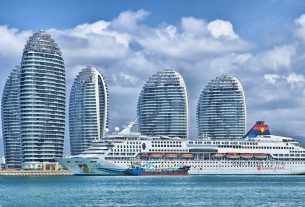In his speech at the opening of the 20th Communist Party Congress, Chinese President Xi Jinping acknowledged that the country’s development is imbalanced, uncoordinated, and unsustainable. He said the next five years are crucial for building a “modern socialist country” and called for a shift to “high-quality” development. But experts say Xi faces a tough challenge in fixing the serious problems that have arisen from four decades of rapid, unbridled growth.
Xi has shown no signs of backing down from his focus on state-owned enterprises, which are less efficient and less profitable, and has cracking down on the tech sector. However, in order to sustain China’s growth, analysts say the country must remove barriers to market competition, spur innovation and productivity, and focus on the service and consumption sector.
But decentralization of economic power makes it difficult for Xi to enact change, and he faces resistance from local officials who benefit from the status quo. Additionally, many of the necessary reforms would be unpopular with the public. As a result, Xi may be forced to pursue a soft landing, slowing growth to avoid an economic collapse.
Whether or not Xi is successful in navigating these challenges will have major implications not only for China, but for the rest of the world.

Background
There are many important factors for the Chinese economy, but some of the most important include:
-The size of the population: China has the world’s largest population, which provides a large potential labor force and market.
-The age structure of the population: China has a young population, which provides a potential source of labor and consumption.
-The level of urbanization: China is a very urbanized country, with over 50% of the population living in cities. This provides a large and affluent consumer base.
-The level of economic development: China is a rapidly developing economy, with GDP growth rates of around 10% over the last few years. This provides opportunities for businesses to expand and invest.
-The level of foreign investment: China has attracted a large amount of foreign investment, which has helped to finance its economic growth.
-The government’s economic policies: The Chinese government has implemented a number of policies to encourage economic development, such as investing in infrastructure and supporting businesses.




